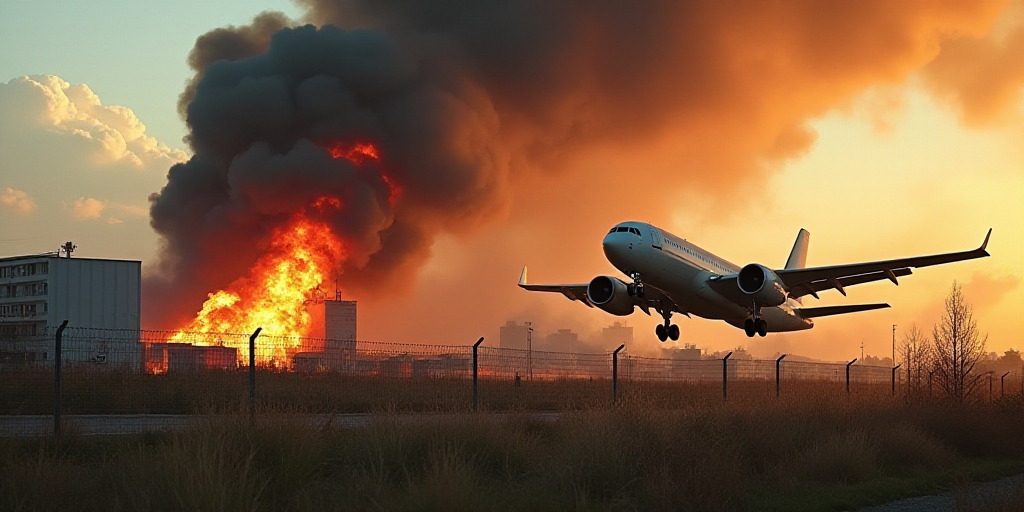Background on Key Players and Context
The United States and the Iran-backed Houthi rebels in Yemen have reached a ceasefire agreement, according to Oman, the mediating country. This development comes after U.S. President Donald Trump announced the halt of bombing campaigns against the insurgents. The Houthis have been launching missiles and drones at Israel and attacking ships in the Red Sea since late 2023, citing solidarity with Palestinians in Gaza, which was devastated by Israel’s military response to a Hamas attack that same year.
In reaction, the United States, Israel’s primary supporter, initiated airstrikes against Houthi positions in Yemen starting January 2024 under President Joe Biden’s administration, with increased intensity following Trump’s return to the White House in January 2024.
Details of the Ceasefire Agreement
Oman’s Foreign Minister, Badr Albusaidi, stated that “following recent conversations and contacts carried out by the Sultanate of Oman with the United States and relevant authorities in Sanaa (…), efforts resulted in a ceasefire agreement between the two parties.” He further added that “in the future, neither party will target the other, including U.S. vessels” in the Red Sea.
Trump declared that “the Houthis announced (…) that they no longer wish to fight. They simply do not want to engage in combat. And we will honor that. We will stop the bombings, and they have surrendered.” He also mentioned that “they say they will no longer attack ships, which was our purpose,” and promised a “very, very important announcement” before his upcoming trip to the Middle East without providing specifics.
Houthi Response and Continued Threat
Mohamed Abdelsalam, the Houthi spokesperson, stated in an interview with Al Masirah, a pro-rebel channel, “We are still evaluating the U.S. stance to ensure it goes beyond mere declarations. If the U.S. enemy resumes its attacks, we will resume our bombardments.”
The Houthi attacks have disrupted navigation through the Suez Canal, a crucial maritime route for nearly 12% of global shipping.
Recent Houthi Attacks on Israel
Just hours before the ceasefire announcement, Israeli airstrikes destroyed Sanaa’s international airport, resulting in three reported deaths according to the rebels. This attack was a response to the Houthi missile bombardment of Israel’s main international airport on Sunday.
Israeli forces also targeted power plants in the region and a cement factory in Amran (north) as per Al Masirah channel.
“Three of the seven aircraft belonging to Yemenia Airlines were destroyed at Sanaa airport, and the international airport was completely destroyed,” said an official from the terminal.
Houthi political chief, Mahdi al-Mashat, vowed a “swift, painful, and beyond what the Israeli enemy can endure” response and warned that “the bombardments will continue.”
Context and Broader Implications
Supported by Iran, an adversary of Israel, the Houthis have been in conflict with Yemen’s government since 2014 and control significant portions of the Arabian Peninsula country, over 1,800 kilometers away from Israeli territory.
On Monday, Israeli attacks on Houthi-controlled areas in western Yemen left four reported deaths, according to the rebels. Israel claimed it targeted Houthi infrastructure for the fifth time since July 2024, “in response to the Houthi regime’s repeated attacks against the State of Israel.”
The Houthis, along with the Palestinian Hamas and Lebanese Hezbollah, are part of what Iran calls the “axis of resistance” against Israel. However, Tehran denies supplying military aid to the Houthis.
Israel’s Defense Minister, Israel Katz, accused Iran of being “directly responsible” for the rebel attacks against his country.
Despite nearly all Houthi missiles being intercepted by Israeli air defenses for over a year, on Sunday, a missile struck directly within the perimeter of Ben Gurion Airport near Tel Aviv.
The Yemeni rebels claimed responsibility for “firing a hypersonic ballistic missile at Ben Gurion,” causing a brief disruption in air traffic and temporary suspension of international flights.
Iran denied assisting the Houthis in the attack. Its Foreign Minister, Javad Zarif, accused Israel of attempting to draw the United States into a “catastrophe” in the Middle East.
Key Questions and Answers
- What is the ceasefire agreement about? The United States and Yemen’s Houthi rebels have agreed to a ceasefire, following U.S. President Donald Trump’s announcement to halt bombing campaigns against the insurgents.
- Who are the Houthis and why are they relevant? The Houthis are an Iran-backed group in Yemen that has been in conflict with the Yemeni government since 2014. They control significant portions of Yemen and have been launching attacks against Israel since late 2023, citing solidarity with Palestinians in Gaza.
- What is the impact of the Houthi attacks? The Houthi attacks have disrupted navigation through the Suez Canal and caused Israel to retaliate with airstrikes against Houthi positions in Yemen.
- What does the ceasefire agreement entail? The agreement, mediated by Oman, stipulates that neither party will target the other, including U.S. vessels, in the Red Sea moving forward.
- What are the Houthis’ intentions post-ceasefire? Despite the ceasefire, Houthi political chief Mahdi al-Mashat has warned that “the bombardments will continue” should Israel resume its attacks.






